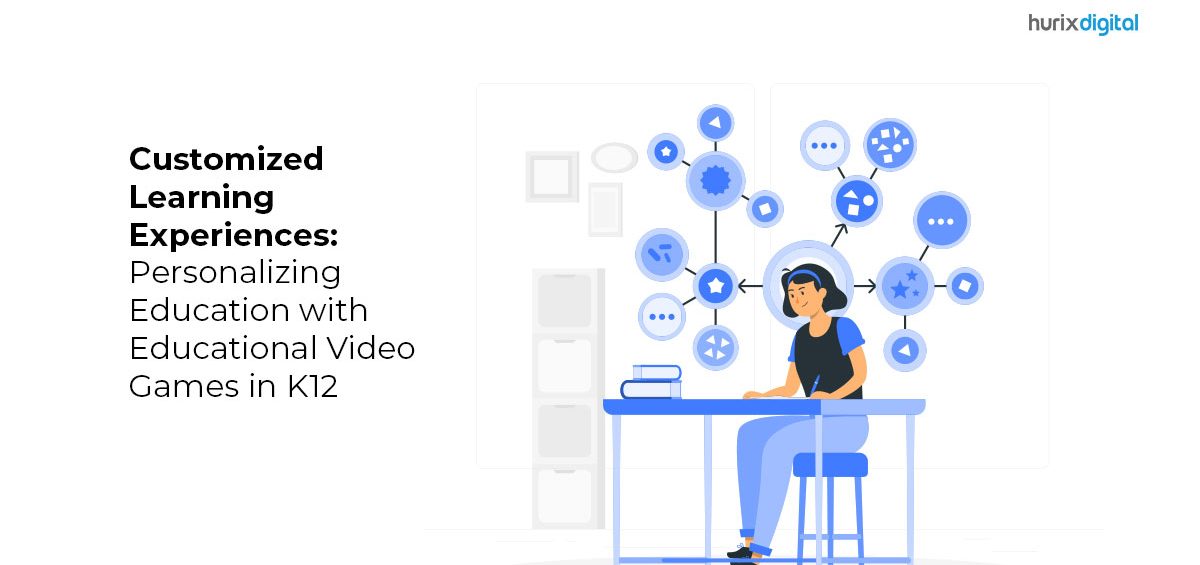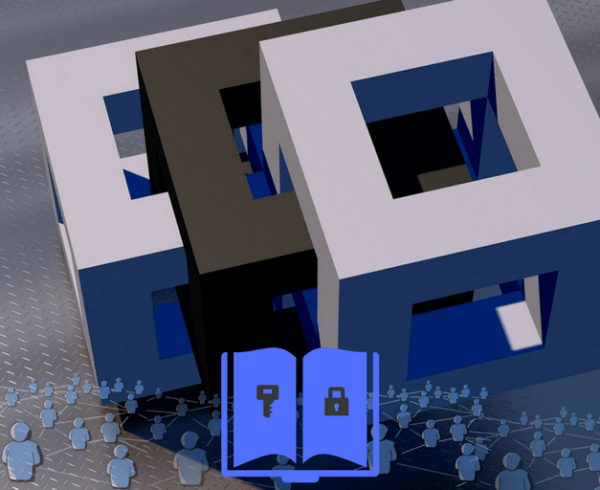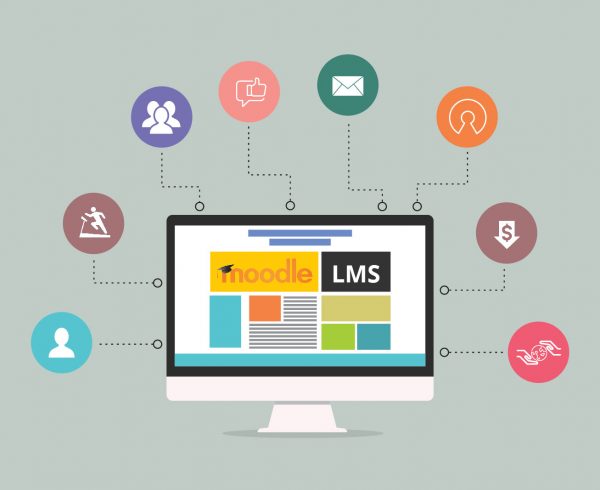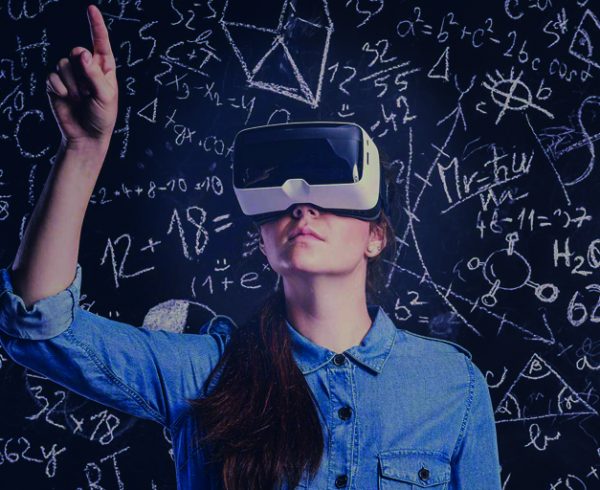Summary
This article discusses how educational video games support customized learning in K12 education. Customized learning is an approach to K12 education that tailors instruction and learning experiences to meet the unique needs, interests, and abilities of each student through personalized learning paths.
Customized learning is also known by the terms personalized learning or individualized learning. Customized learning is an approach to K12 education that tailors instruction and learning experiences to meet the unique needs, interests, and abilities of each student through personalized learning paths. It recognizes that students have different learning styles, strengths, and areas for growth and seeks to create a more personalized and engaging student-centered learning environment. Educational video games often excel in offering these student-centered learning opportunities.
Table of Contents
- Customized Learning vs. Traditional Learning
- Personal Learning Paths Still Offer Opportunities for Collaboration and Social Interaction
- Student-Centered Learning Emphasizes Differentiated Content
- Data-Driven Decision Making
- Enhanced Engagement
- Flexibility and Adaptability
- Immediate Feedback
- Individualized Pace
- Mastery-Based Learning
- Self-Reflection and Ownership
- Targeted Instruction
- How Do Educational Video Games Support Customized Learning?
- EdTech Solutions Provide Adaptive Opportunities
- Online Game-Based Learning Provides Individualized Assessments
- Educational Video Games Provide Differentiated Instruction
- Game-Based Education Prioritizes Progress Tracking and Data Analytics
- Integrating Games In Education Allows for Personalization and Customization
- Top Education Tech Companies Offer Games that are Supportive By Design
- Wrapping Up
Customized Learning vs. Traditional Learning
In customized learning, the pace, content, and instructional strategies are adjusted to align with the specific needs of each student. This approach goes beyond the longstanding one-size-fits-all model of K12 education, where all students in a classroom receive the same instruction and assignments. Instead, customized learning acknowledges that learners may benefit from personalized learning paths (student-centered learning).
Proponents of customized learning in K12 education tout the following benefits when compared to traditional learning approaches.
1. Personal Learning Paths Still Offer Opportunities for Collaboration and Social Interaction
Customized learning can still incorporate collaboration and social interaction, particularly via online game-based learning in the classroom. Students can work together as teams, engage in discussions, or receive peer feedback, fostering teamwork and social skills.
2. Student-Centered Learning Emphasizes Differentiated Content
Customized learning is often front and center in online game-based learning. That’s precisely why so many educators and experts support integrating games into education. Educational video games can present content in various formats, catering to different learning styles and preferences. This allows students to engage with the material in engaging, enjoyable, and effective games developed by top education tech companies.
3. Data-Driven Decision Making
Customized learning often relies on data analytics and progress tracking to inform instructional decisions. Educators can analyze summative assessments to identify patterns, adjust instructional strategies, and provide targeted support where needed.
4. Enhanced Engagement
Using EdTech solutions to provide tailored content and activities to individual students, customized learning increases student engagement. Students are more likely to be motivated when they have a personal connection to the material and when they feel that their unique needs and interests are being addressed.
5. Flexibility and Adaptability
Customized learning, including e-learning in higher education, provides flexibility in time, location, and resources. Students can often access online game-based learning from school or home and engage in game-based education at their convenience, adapting their learning to fit their schedules and preferences.
6. Immediate Feedback
Students receive timely information, allowing them to correct mistakes and reinforce understanding. Immediate feedback supports metacognitive skills and encourages students to take an active role in their learning.
7. Individualized Pace
Student-centered learning allows learning to progress at their own pace via traditional methods and online game-based learning. They can spend more time on challenging concepts or move quickly through familiar topics. These personalized learning paths prevent students from feeling bored or overwhelmed, leading to improved engagement and motivation.
8. Mastery-Based Learning
Personalized learning often adopts a mastery-based approach, where students must demonstrate proficiency in a topic before moving on to the next level or concept. EdTech solutions excel at providing these opportunities as students cannot proceed in educational video games until they have a solid understanding of the subject matter.
9. Self-Reflection and Ownership
Student-centered learning encourages students to reflect on their progress, set goals, and take ownership of their learning journey. This fosters self-directed learning skills, independence, and the ability to steer personalized learning paths toward success.
10. Targeted Instruction
Game-based education is the perfect supplement to traditional targeted instruction. Students can receive support in areas where they struggle while having the opportunity to delve deeper into their interests and strengths.
Also Read: 4 E-Learning Trends for the Future of the Higher Education System in 2023
How Do Educational Video Games Support Customized Learning?
Top education tech companies, including higher education technology companies, design and develop games that support personalized learning paths. Student-centered learning is supported by some of the world’s titans of tech, including Bill Gates and Mark Zuckerberg.
1. EdTech Solutions Provide Adaptive Opportunities
Many educational video games incorporate adaptive difficulty systems that adjust the level of challenge based on the player’s abilities. These games can assess the player’s performance and dynamically modify the difficulty to ensure a suitable level of challenge.
2. Online Game-Based Learning Provides Individualized Assessments
Educational video games provide immediate and individualized feedback to players. Instead of generic responses, t games can offer specific feedback tailored to the player’s actions and decisions. Personalized feedback helps students understand their strengths and weaknesses, identifies areas for improvement, and encourages them to try different strategies or approaches to problem-solving.
3. Educational Video Games Provide Differentiated Instruction
Educational video games can accommodate different learning styles and preferences for those receiving their K12 education and for those focused on e-learning in higher education. EdTech solutions, such as online game-based learning, may offer multiple pathways to solve problems or present information in various formats (e.g., text, visuals, audio) to cater to different learning modalities. This allows students to engage with the content in a way that suits their individual needs and preferences, enhancing their comprehension and retention.
4. Game-Based Education Prioritizes Progress Tracking and Data Analytics
Educational games developed by top education tech companies incorporate progress tracking and data analytics features. These tools collect data on the student’s performance, including things like completion time, accuracy, and problem-solving strategies. By analyzing this data, educators can gain insights into the student’s progress, identify areas of strength or weakness, and make informed decisions regarding the next steps in the student-centered learning process.
5. Integrating Games In Education Allows for Personalization and Customization
Some educational games (particularly those developed by higher education technology companies) offer extensive customization options, allowing students to completely personalize their experience. This can include selecting specific topics or areas of interest, adjusting difficulty levels, or setting learning goals. Customization empowers students to take ownership of their learning journey, fostering a sense of autonomy and motivation.
6. Top Education Tech Companies Offer Games that are Supportive By Design
A game-based education can provide support to assist learners in overcoming challenges. Educational video games may offer hints, prompts, or tutorials to help students when they encounter difficulties. This ensures that students receive the right amount of assistance to progress without becoming overly reliant on external support.
Also Read: Is Game-Based Learning the Future of Education?
Wrapping Up
As a leading provider of premium K12 digital solutions, Hurix is proud to partner with Game Learning. Game Learning is a leading EdTech company that develops K12 educational video games focused on Maths, Science, ELA, and Social Studies. To learn more or to request a free demo, contact us today.











